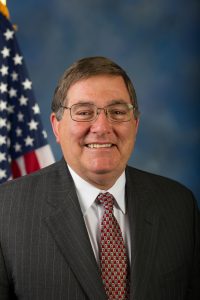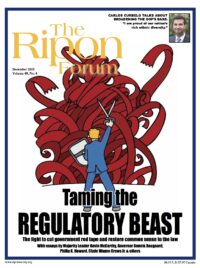
With the holiday season in full swing, millions of Americans are bracing for the long traffic jams that may stand between them uniting with their loved ones. Planes, trains, and automobiles all contribute to transportation delays which have become an inevitable part of the holidays. However, the nation’s roadways remain one of the most efficient means of travel. They are fundamental to our economic and societal backbone – they connect us to family, friends, schools, businesses, and much more. While we are fortunate to enjoy such a thriving transportation system, much of that success is dependent on keeping the traveling public safe.
There is no doubt that cars are safer today than ever before. Many cars are now equipped with cameras and automatic braking features that give drivers greater situational awareness and can help them avoid crashes altogether. Cars may even be able to communicate with each other on the road as early as next year. The automotive sector is currently undergoing a technology revolution.
Despite these automotive safety advancements, automakers and the National Highway Traffic Safety Administration (NHTSA) have a responsibility to ensure the safety of the driving public. Automakers are required to meet strict safety criteria to sell vehicles in the United States. Following a record year of vehicle recalls due to safety defects, it is clear that automakers must do more to meet those standards, and congruently, NHTSA must do more to enforce them.
It is imperative that NHTSA, as chief regulator of vehicle safety, keeps pace with the complexities of those next-generation technologies. Lives depend on it.
As we look to the future, embracing automotive technologies will provide even greater life-saving benefits. Simultaneously it is also imperative that NHTSA, as chief regulator of vehicle safety, keeps pace with the complexities of those next-generation technologies. Lives depend on it.
In the Commerce, Manufacturing, and Trade Subcommittee, which I chair, we have held several hearings over the last year to address vehicle safety issues. During those hearings we have examined new technologies, like vehicle-to-vehicle communications and the internet of things.
As a result of these hearings, we were able to craft auto safety legislation that will modernize NHTSA, improve recall processes, and transition our view to the future, where there are boundless opportunities to improve safety and experience for those behind the wheel.
Working in a divided government has not made it easy to get important initiatives signed into law. But since taking over as chairman of the subcommittee, I have worked closely with NHTSA and its Administrator, Dr. Mark Rosekind, to improve safety compliance for automakers and dealers.
As part of the long term highway bill that was recently signed into law, we included a number of bipartisan provisions that will make the recall process work better for consumers, increase funding for NHTSA’s safety programs, and provide other meaningful safety reforms.
As part of the long term highway bill that was recently signed into law, we included a number of bipartisan provisions that will make the recall process work better for consumers, increase funding for NHTSA’s safety programs, and provide other meaningful safety reforms that will make automakers more accountable to safety regulators and keep NHTSA focused on its core mission of saving lives.
Safety behind the wheel is our top priority. We are joined by the automakers and NHTSA in that goal, and we are uniquely positioned on Capitol Hill to do something about it. To that end, our commitment to vehicle safety cannot stop with the newest model year or safety feature. It must define the work and culture of automakers, dealers, part suppliers, safety officials, and all others contributing to the maintenance, development, and advancement of the industry. American motorists do not deserve any less than that.
Michael Burgess represents the 26th District of Texas in the U.S. House of Representatives. He serves as Chairman of the Energy & Commerce Committee’s Commerce, Manufacturing, and Trade Subcommittee.




